第9章
[It has been suggested to the Author that it might be well to reprint here a detailed account of the public dinner alluded to in the foregoing Introduction, as given in the newspapers of the time; and the reader is accordingly presented with the following extract from the EDINBURGH WEEKLY JOURNAL for Wednesday, 28th February, 1827.]
THE THEATRICAL FUND DINNER.
Before proceeding with our account of this very interesting festival--for so it may be termed--it is our duty to present to our readers the following letter, which we have received from the President:--TO THE EDITOR OF THE "EDINBURGH WEEKLY JOURNAL."
Sir,--I am extremely sorry I have not leisure to correct the copy you sent me of what I am stated to have said at the dinner for the Theatrical Fund. I am no orator, and upon such occasions as are alluded to, I say as well as I can what the time requires.
However, I hope your reporter has been more accurate in other instances than in mine. I have corrected one passage, in which I am made to speak with great impropriety and petulance, respecting the opinions of those who do not approve of dramatic entertainments. I have restored what I said, which was meant to be respectful, as every objection founded in conscience is, in my opinion, entitled to be so treated. Other errors I left as I found them, it being of little consequence whether I spoke sense or nonsense in what was merely intended for the purpose of the hour.
I am, sir, Your obedient servant, EDINBURGH, MONDAY. WALTER SCOTT.
*
The Theatrical Fund Dinner, which took place on Friday, in the Assembly Rooms, was conducted with admirable spirit. The Chairman, Sir WALTER SCOTT, among his other great qualifications, is well fitted to enliven such an entertainment. His manners are extremely easy, and his style of speaking simple and natural, yet full of vivacity and point; and he has the art, if it be art, of relaxing into a certain homeliness of manner, without losing one particle of his dignity. He thus takes off some of that solemn formality which belongs to such meetings, and, by his easy, and graceful familiarity, imparts to them somewhat of the pleasing character of a private entertainment. Near Sir W. Scott sat the Earl of Fife, Lord Meadowbank, Sir John Hope of Pinkie, Bart., Admiral Adam, Baron Clerk Rattray, Gilbert Innes, Esq., James Walker, Esq., Robert Dundas, Esq., Alexander Smith, Esq., etc.
The cloth being removed, "Non nobis, Domine," was sung by Messrs.
Thorne, Swift, Collier, and Hartley, after which the following toasts were given from the chair:--"The King"--all the honours.
"The Duke of Clarence and the Royal Family."
The CHAIRMAN, in proposing the next toast, which he wished to be drunk in solemn silence, said it was to the memory of a regretted-prince, whom we had lately lost. Every individual would at once conjecture to whom he alluded. He had no intention to dwell on his military merits. They had been told in the senate; they had been repeated in the cottage; and whenever a soldier was the theme, his name was never far distant. But it was chiefly in connection with the business of this meeting, which his late Royal Highness had condescended in a particular manner to patronize, that they were called on to drink his health. To that charity he had often sacrificed his time, and had given up the little leisure which he had from important business. He was always ready to attend on every occasion of this kind, and it was in that view that he proposed to drink to the memory of his late Royal Highness the Duke of York.--Drunk in solemn silence.
The CHAIRMAN then requested that gentlemen would fill a bumper as full as it would hold, while he would say only a few words. He was in the habit of hearing speeches, and he knew the feeling with which long ones were regarded. He was sure that it was perfectly unnecessary for him to enter into any vindication of the dramatic art, which they had come here to support. This, however, he considered to be the proper time and proper occasion for him to say a few words on that love of representation which was an innate feeling in human nature. It was the first amusement that the child had. It grew greater as he grew up; and even in the decline of life nothing amuses so much as when a common tale is told with appropriate personification. The first thing a child does is to ape his schoolmaster by flogging a chair. The assuming a character ourselves, or the seeing others assume an imaginary character, is an enjoyment natural to humanity. It was implanted in our very nature to take pleasure from such representations, at proper times and on proper occasions. In all ages the theatrical art had kept pace with the improvement of mankind, and with the progress of letters and the fine arts. As man has advanced from the ruder stages of society, the love of dramatic representations has increased, and all works of this nature have keen improved in character and in structure.
They had only to turn their eyes to the history of ancient Greece, although he did not pretend to be very deeply versed in its ancient drama. Its first tragic poet commanded a body of troops at the battle of Marathon. Sophocles and Euripides were men of rank in Athens when Athens was in its highest renown.